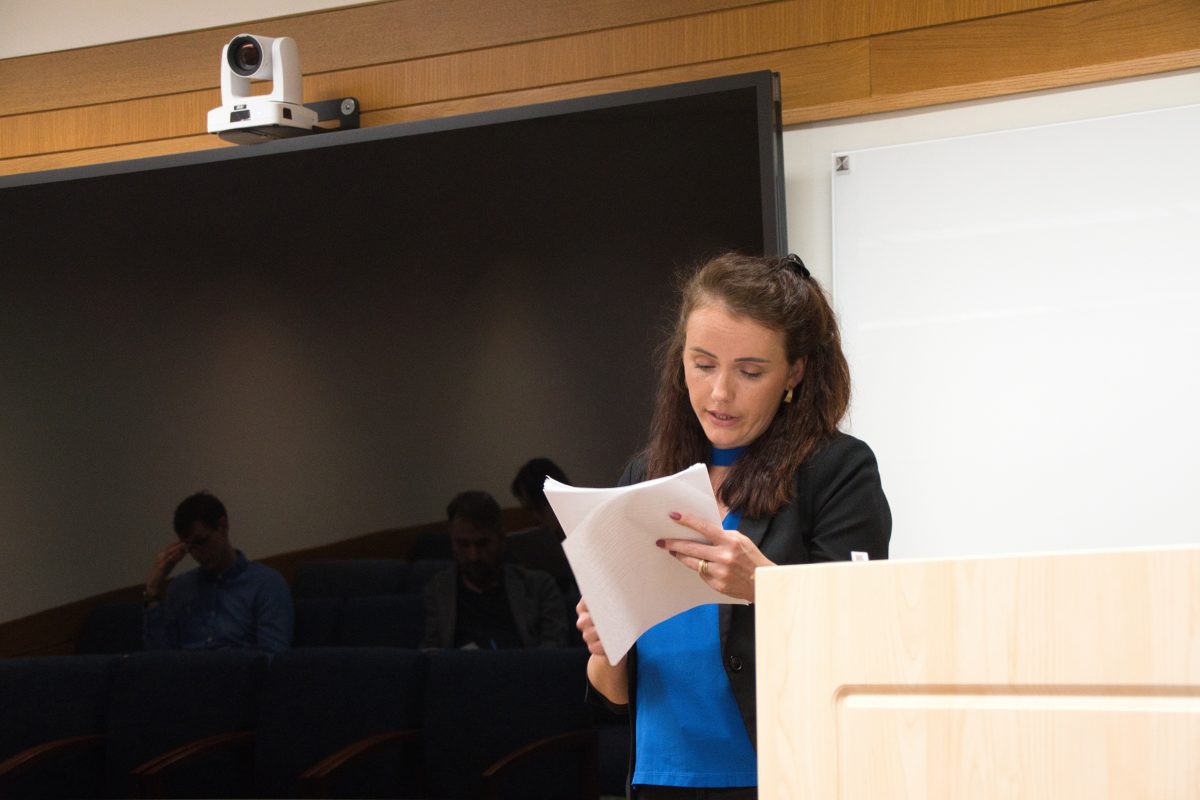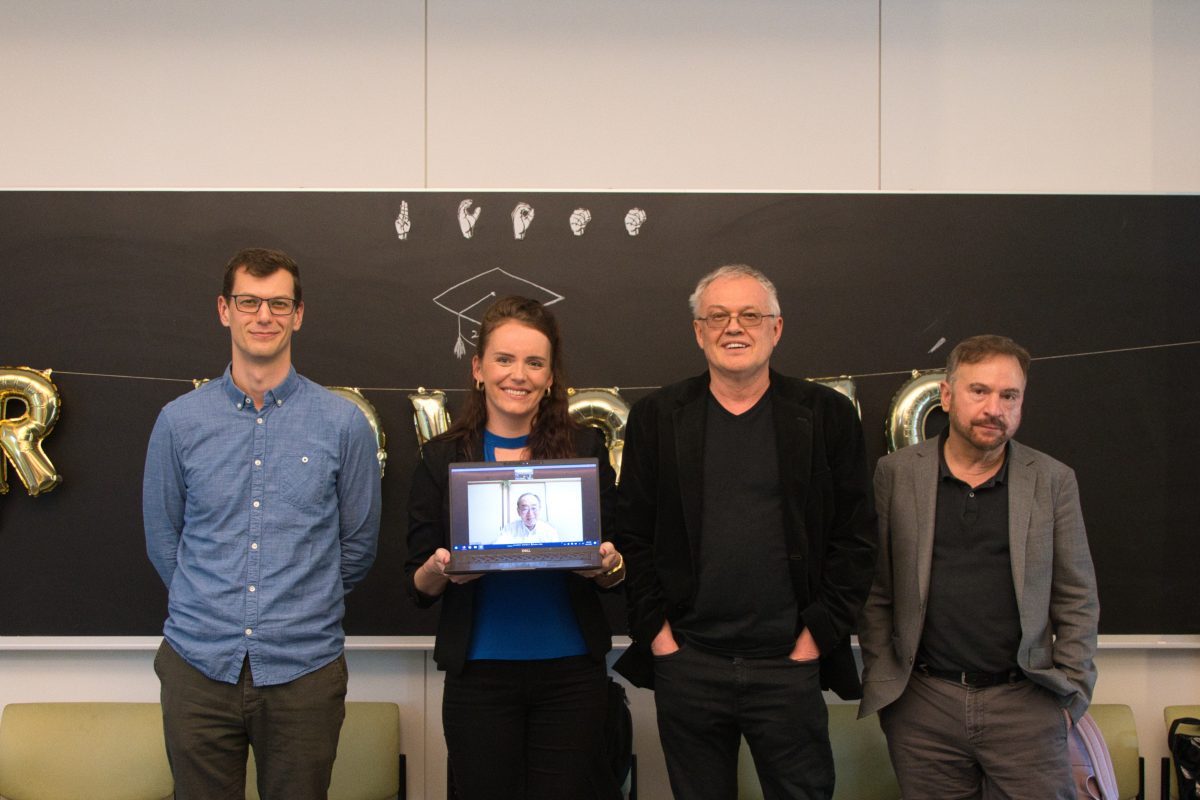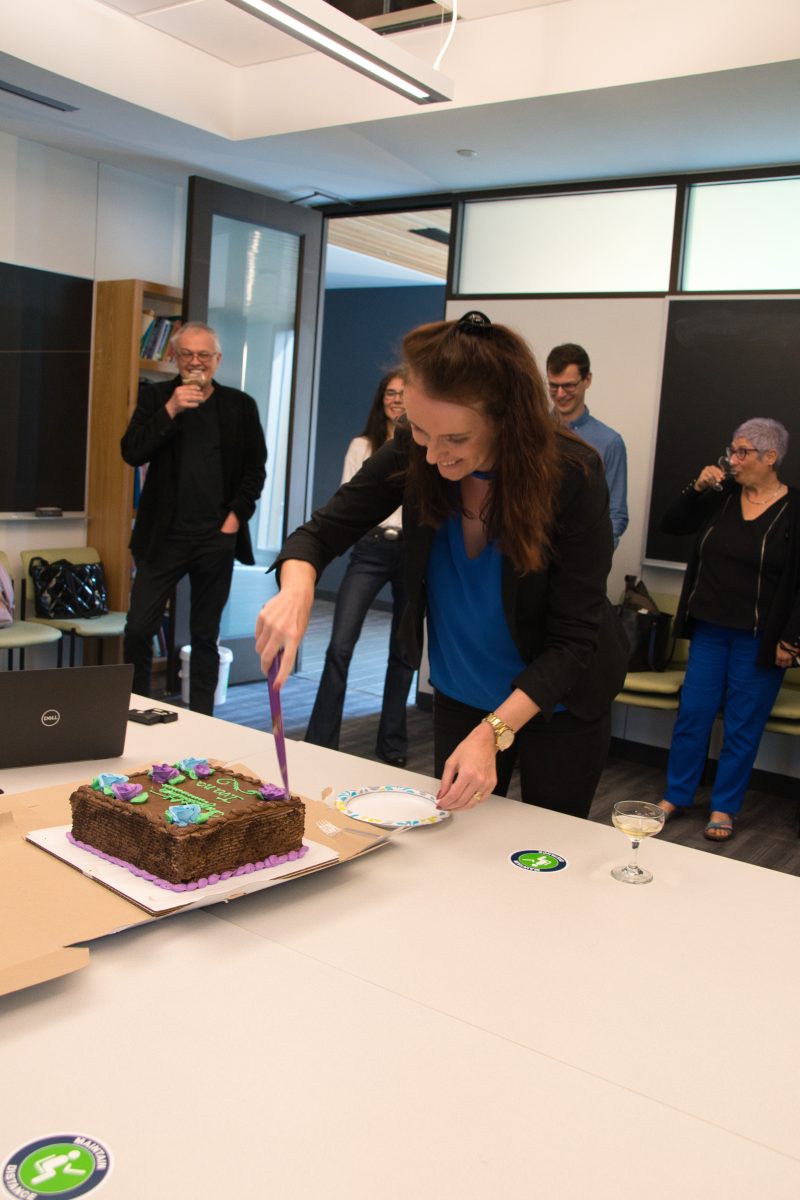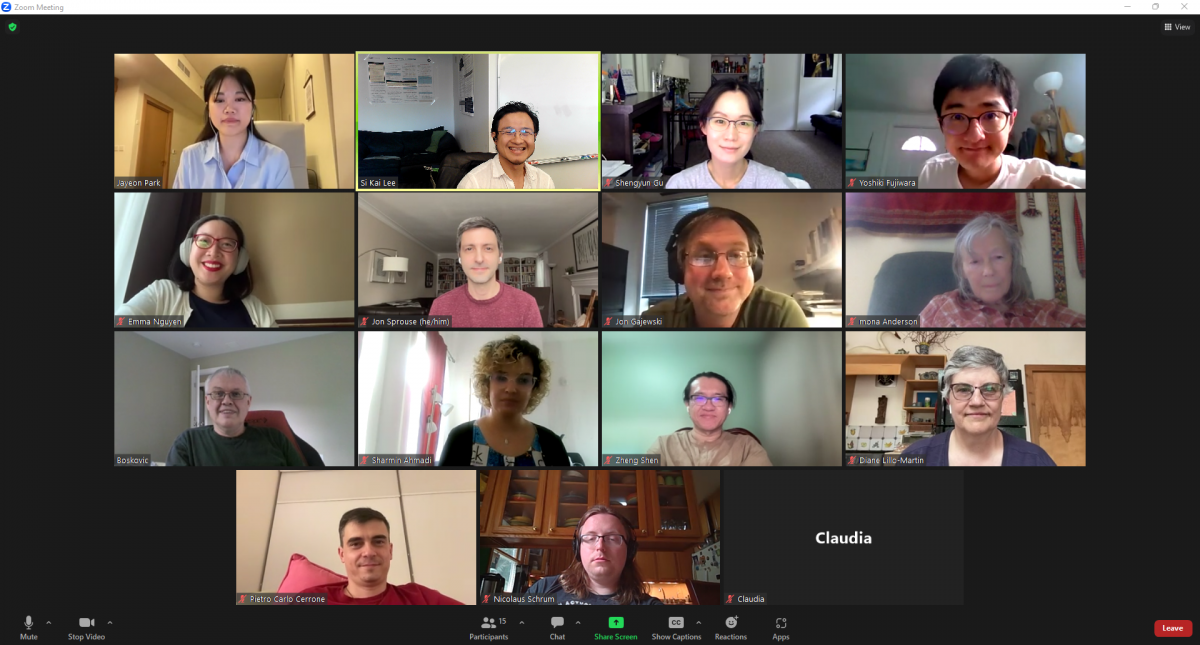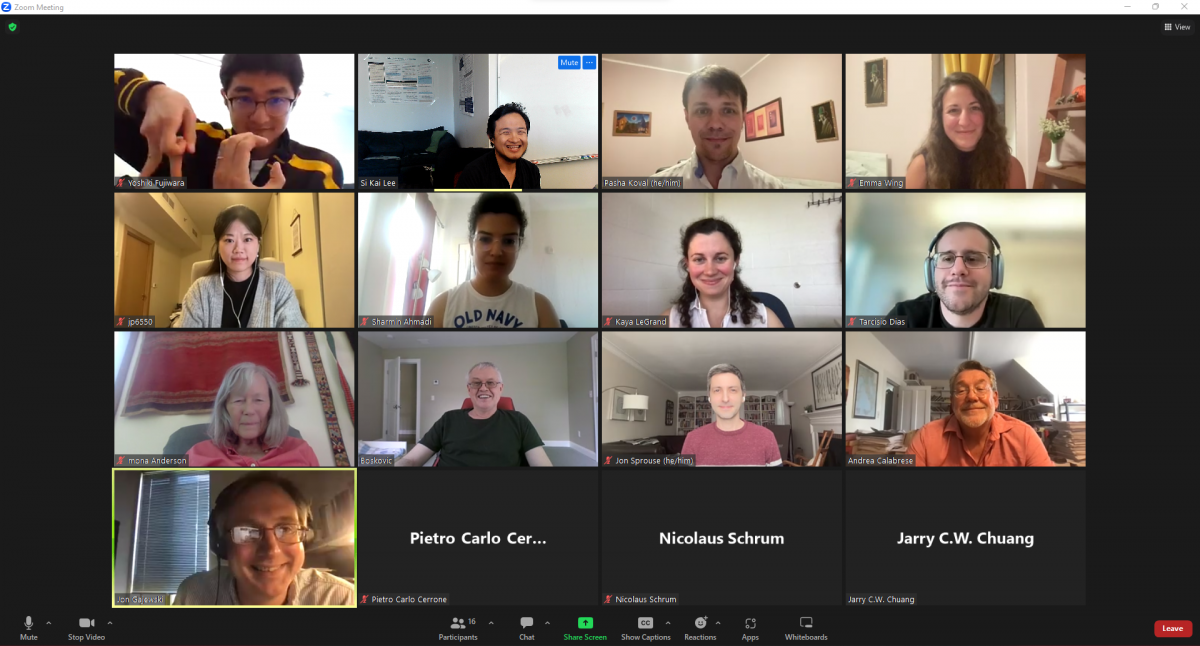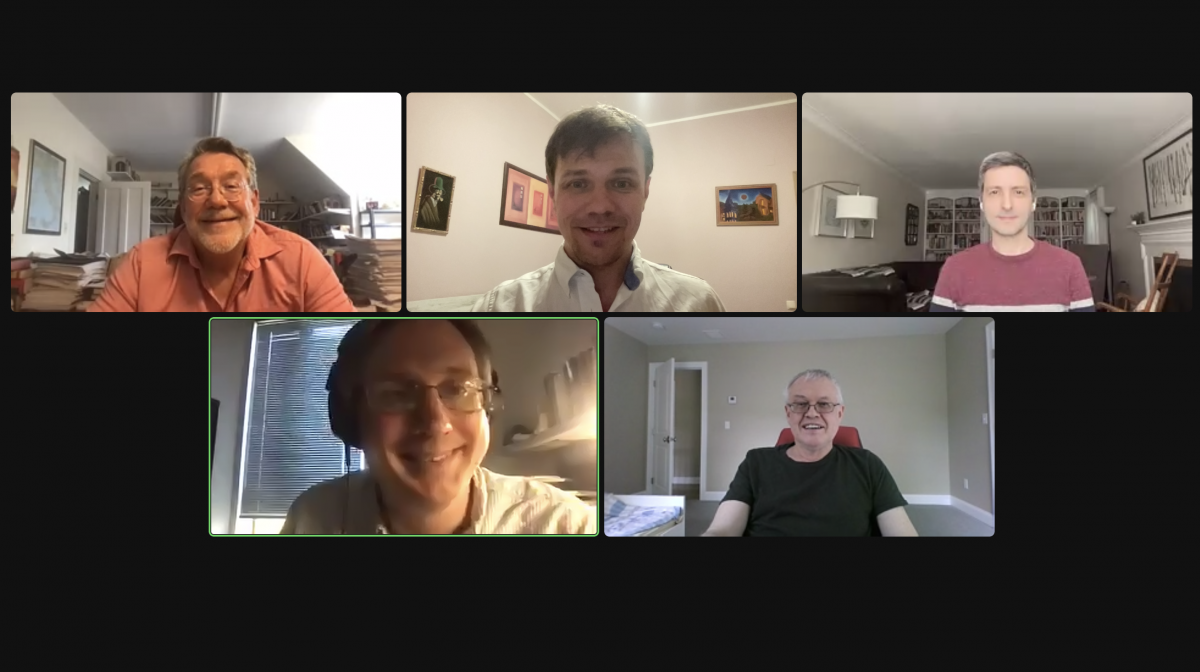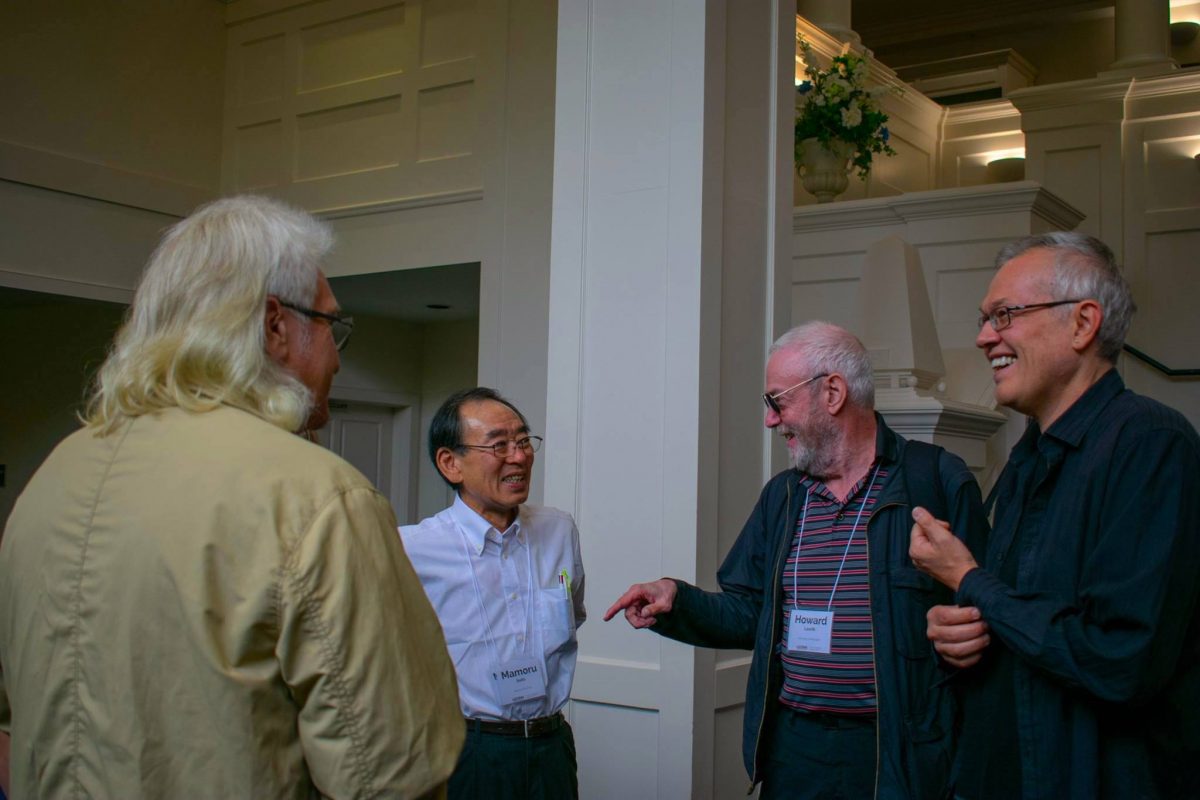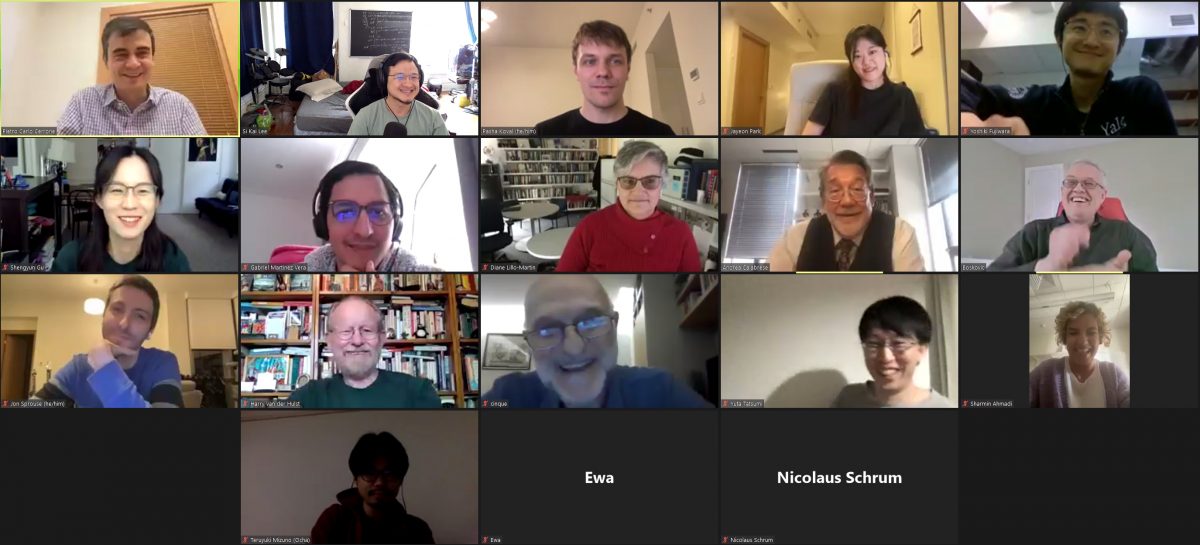Harry van der Hulst was honored with a festschrift and special satellite workshop organized by Nancy Ritter at the Twelfth North American Phonology Conference (NAPhCxii), held at Concordia University, Montreal, Canada, May 14, 2023.
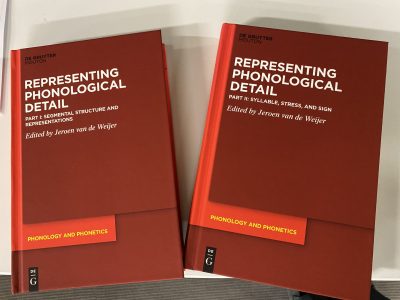
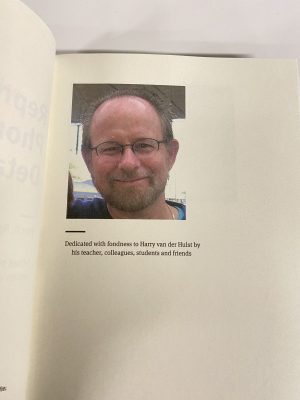
Harry also gave an invited presentation at the main conference titled What can stress tell us about the structure of synthetic compounds?
Presentations by current/former UConn affiliates included:
At the satellite workshop:
Aida Talic (PhD 2017, now at University of Illinois, Urbana-Champaign). Phases and accent assignment domains
Alexandre Vaxman (PhD 2016, now at University of Tours). Interaction of phonological and diacritic weight in hybrid accent systems
Rachel Channon. A new feature type: Functional features in sign languages
At the main conference:
Shengyun Gu, Diane Lillo-Martin and Deborah Chen Pichler (PhD 2001, now at Gallaudet). Phonological Development in ASL-Signing Children: Pseudosign Repetition
Photo: UConn affiliates at the workshop in person.
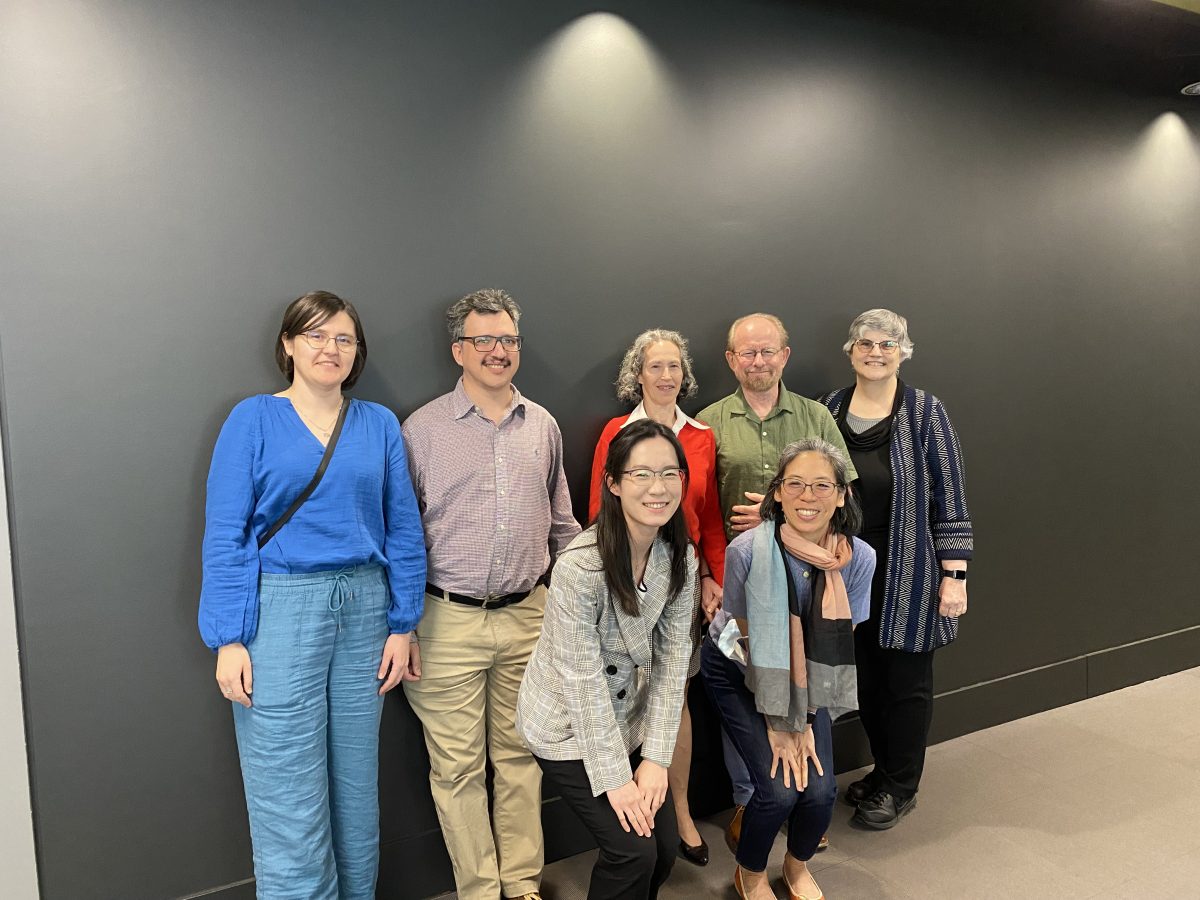
Front row: Shengyun Gu, Deborah Chen Pichler
Back row: Aida Talic, Alexandre Vaxman, Nancy Ritter, Harry van der Hulst, Diane Lillo-Martin
